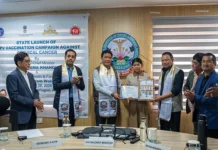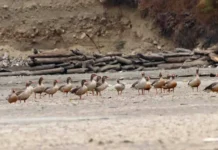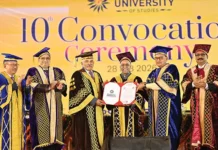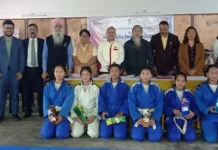ITANAGAR, Aug 16: The All Arunachal Pradesh Students’ Union (AAPSU) has voiced its opposition to the “nefarious designs of the NSCN (IM)” and demanded that the government of India (GoI) keep Arunachal away from any kind of “territorial changes” or “administrative and political interventions” while framing the final accord with the NSCN (IM) and other groups.
The union also questioned the silence of the state government and the elected representatives of the TLC region on the talks between the Centre and the NSCN (IM).
It demanded to know whether the state government was party to the talks and if there has been any consultation by representatives of the GoI to assuage the concerns of the people of Arunachal.
The union said that, “as previously assured,” the Centre should take all the stakeholders of Arunachal in confidence and address all concerns before framing the accord. It said failure to do so might lead to large-scale social unrest in the state.
It further said that it took strong exception to the press statement issued by the Tirap, Changlang and Longding People’s Forum (TCLPeF).
The forum had in its press statement sought support for the Indo-Naga peace talks. Stating that many precious lives and properties have been lost due to violence fuelled by insurgency and counter-insurgency activities, the TCLPeF had said that peace would return to the insurgency-infested Tirap, Changlang and Longding only through the Indo-Naga peace talks “by finding a permanent and sustainable peace solution.”
The AAPSU said it condemns the TCLPeF for its anti-Arunachal activities, and warned it against “issuing misleading press statements and other information in the public domain to befool the masses.”
The union said that the “insurgent activities and the players involved in the three districts are not home-grown but are ones from outside the state, who for years have taken the people of the three districts for a ride. The people of TLC should be aware of such organizations masquerading as ‘public voice’ and not repeat the past mistakes of the then political leaders who imported insurgency from outside the state into the region for their vested and personal gains.”




